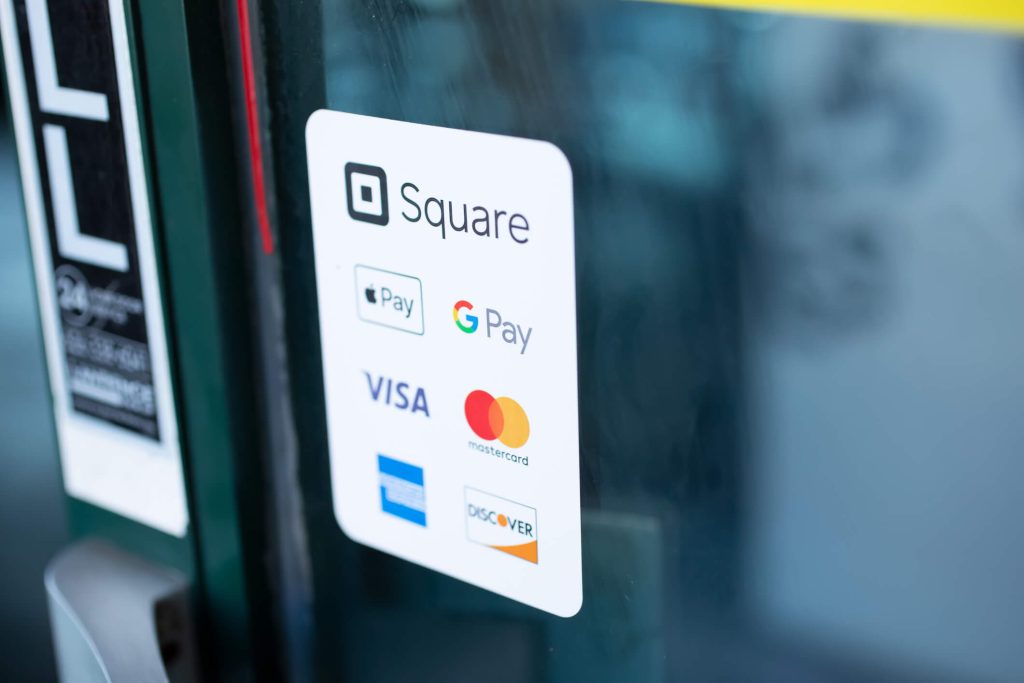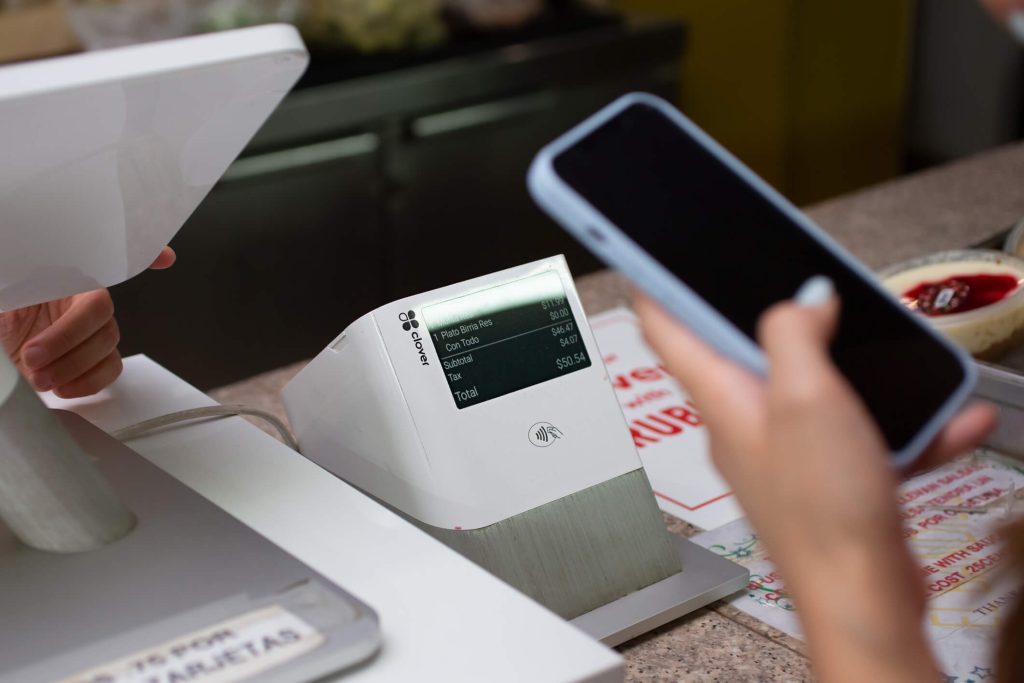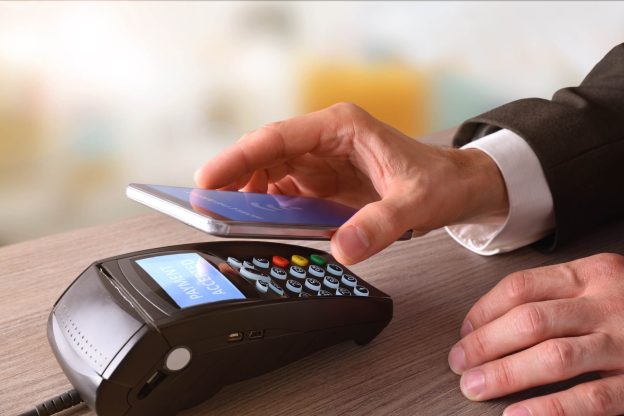In today’s fast-paced digital world, businesses are constantly seeking innovative solutions to streamline their operations and enhance customer experiences. One such solution that has gained significant popularity is the Mobile Point of Sale (POS) system. Mobile POS systems have revolutionized the way small businesses handle transactions, providing increased mobility, cost-effectiveness, and improved efficiency. In this article, we will explore the benefits of using mobile POS systems in small businesses, address security concerns, and provide an overview of the top mobile POS systems available in the market.
What is a Mobile POS System?
A Mobile POS system is a portable device that allows businesses to accept payments and conduct transactions on the go. It typically consists of a smartphone or tablet equipped with a card reader and a mobile POS app. These systems enable businesses to accept various payment methods, including credit and debit cards, mobile wallets, and contactless payments. Mobile POS systems have become increasingly popular among small businesses due to their convenience, affordability, and ability to provide a seamless customer experience.
Top Mobile POS Systems for Small Businesses
Now that we have explored the benefits and security concerns of mobile POS systems,Here’s a look at the top 10 mobile POS systems for 2024, each offering unique features that set them apart in the competitive market.
Square POS

Square POS is a popular choice among small businesses due to its user-friendly interface, affordability, and robust features. It offers a range of hardware options, including card readers, cash drawers, and receipt printers. Square POS also provides advanced inventory management, analytics, and integration with other business tools.
Shopify POS

Shopify POS is an excellent option for businesses that operate both online and offline. It seamlessly integrates with Shopify’s e-commerce platform, allowing businesses to manage inventory, sales, and customer data from a single dashboard. Shopify POS offers various hardware options and supports multiple payment methods.
PayPal Here
PayPal Here is a mobile POS system offered by the renowned payment provider, PayPal. It allows businesses to accept payments via credit and debit cards, PayPal, and even checks. PayPal Here offers a range of hardware options, including card readers and cash drawers. It also provides features like inventory management, invoicing, and integration with PayPal’s online payment services.
Lightspeed Retail
Lightspeed Retail is a comprehensive mobile POS system designed specifically for retail businesses. It offers advanced inventory management, customer relationship management, and analytics features. Lightspeed Retail also provides integration with e-commerce platforms, accounting software, and other business tools.
Vend
Vend is a cloud-based mobile POS system that caters to various industries, including retail, hospitality, and fashion. It offers features like inventory management, customer loyalty programs, and real-time reporting. Vend also provides integration with popular accounting software and e-commerce platforms.
ShopKeep
ShopKeep is a mobile POS system that focuses on providing a user-friendly interface and robust features for small businesses. It offers features like inventory management, employee management, and real-time analytics. ShopKeep also provides integration with various business tools, including accounting software and e-commerce platforms.
Toast POS
Toast POS is a mobile POS system specifically designed for the restaurant industry. It offers features like tableside ordering, menu management, and kitchen display systems. Toast POS also provides integration with online ordering platforms and loyalty programs.
Clover POS

Clover POS is a versatile mobile POS system that caters to various industries, including retail, restaurants, and service-based businesses. It offers a range of hardware options, including card readers, cash registers, and barcode scanners. Clover POS also provides features like inventory management, employee management, and integration with other business tools.
iZettle
iZettle is a mobile POS system that primarily targets small businesses and sole traders. It offers a compact card reader that connects to smartphones or tablets via Bluetooth. iZettle provides features like inventory management, invoicing, and integration with accounting software.
SumUp
SumUp is a mobile POS system that focuses on simplicity and affordability. It offers a compact card reader that connects to smartphones or tablets via Bluetooth. SumUp provides features like inventory management, invoicing, and integration with accounting software.
Benefits of Using Mobile POS in Small Businesses
Mobile POS systems offer numerous benefits for small businesses, empowering them to compete with larger enterprises and meet the evolving needs of their customers. Let’s explore some of the key advantages of using mobile POS systems:
Increased Mobility and Flexibility
One of the primary advantages of mobile POS systems is the increased mobility and flexibility they provide. With a mobile POS system, businesses can accept payments anywhere, whether it’s at a trade show, a pop-up shop, or even at the customer’s doorstep. This flexibility allows businesses to expand their reach and cater to customers’ needs in real-time, enhancing customer satisfaction and driving sales.
Cost-Effectiveness and Affordability
Compared to traditional POS systems, mobile POS systems are significantly more cost-effective and affordable for small businesses. Traditional POS systems often require substantial upfront investments in hardware, software, and installation. In contrast, mobile POS systems leverage existing smartphones or tablets, eliminating the need for expensive equipment. Additionally, many mobile POS providers offer flexible pricing plans, allowing businesses to choose a plan that aligns with their budget and requirements.
Enhanced Customer Experience
Mobile POS systems enable businesses to provide a seamless and personalized customer experience. With features like digital receipts, customer profiles, and loyalty programs, businesses can create a more engaging and tailored shopping experience. Customers appreciate the convenience of receiving digital receipts via email or text, eliminating the hassle of paper receipts. Moreover, mobile POS systems can store customer information, enabling businesses to offer personalized recommendations and promotions based on past purchases.
Streamlined Inventory Management
Efficient inventory management is crucial for small businesses to optimize their operations and avoid stockouts or overstocking. Mobile POS systems offer robust inventory management features, allowing businesses to track stock levels, receive real-time notifications for low inventory, and generate detailed reports. This streamlines the inventory management process, enabling businesses to make informed decisions, reduce costs, and improve overall efficiency.
Real-Time Analytics and Reporting
Data-driven insights are invaluable for small businesses looking to make informed decisions and drive growth. Mobile POS systems provide real-time analytics and reporting capabilities, allowing businesses to track sales, monitor performance, and identify trends. These insights enable businesses to optimize their operations, identify top-selling products, and tailor their marketing strategies to maximize revenue.
Integration with Other Business Tools
To streamline operations and enhance efficiency, it is essential for businesses to integrate their POS system with other business tools. Mobile POS systems offer seamless integration with various software and tools, such as accounting software, customer relationship management (CRM) systems, and e-commerce platforms. This integration eliminates the need for manual data entry, reduces errors, and enables businesses to have a holistic view of their operations.
Improved Efficiency and Productivity
Mobile POS systems simplify and expedite the checkout process, reducing waiting times and improving overall efficiency. With a mobile POS system, businesses can quickly process transactions, accept multiple payment methods, and generate digital receipts, eliminating the need for paper-based processes. This not only saves time but also enhances productivity, allowing businesses to serve more customers and focus on other critical aspects of their operations.
Security Concerns with Mobile POS Systems
While mobile POS systems offer numerous benefits, it is crucial to address security concerns to protect sensitive customer data and maintain trust. Let’s explore some of the security risks associated with mobile POS systems and the measures businesses can take to mitigate them.
Understanding the Security Risks
Mobile POS systems are susceptible to various security risks, including data breaches, malware attacks, and unauthorized access. As these systems handle sensitive customer information, such as credit card details, it is essential to implement robust security measures to safeguard this data. Failure to do so can result in reputational damage, financial losses, and legal consequences.
Encryption and Data Protection Measures
Encryption plays a vital role in securing mobile POS systems. Businesses should ensure that their mobile POS system uses end-to-end encryption to protect customer data during transmission. Additionally, data should be encrypted when stored on the device or in the cloud. Implementing strong passwords and two-factor authentication further enhances data protection.
Compliance with Payment Card Industry Data Security Standards (PCI DSS)
Compliance with Payment Card Industry Data Security Standards (PCI DSS) is crucial for businesses that handle credit card information. PCI DSS provides a set of security standards that businesses must adhere to in order to protect cardholder data. It is essential for businesses to choose a mobile POS system that is PCI DSS compliant and regularly undergoes security audits.
Best Practices for Securing Mobile POS Systems
As businesses increasingly adopt mobile Point of Sale (POS) systems for their flexibility and efficiency, the need to secure these systems becomes paramount. Mobile POS systems handle sensitive payment information and are often used in diverse environments, which can expose them to various security threats. Here are essential best practices for securing mobile POS systems to protect against potential breaches and ensure transaction safety.
1. Use Strong Authentication
To prevent unauthorized access to mobile POS systems, implementing strong authentication methods is crucial. Consider the following measures:
- Multi-factor Authentication (MFA): Require users to verify their identity using more than one method of authentication. This could include a combination of passwords, biometric data (fingerprint or facial recognition), and physical tokens.
- Regular Password Updates: Encourage or mandate regular password changes to decrease the risk of password-related breaches. Ensure that all passwords adhere to high-security standards, incorporating a mix of letters, numbers, and special characters.
2. Physical Security Measures
Given the portable nature of mobile POS devices, physical security cannot be overlooked. To protect these devices from theft or tampering:
- Secure Mounting: Use secure stands and mounts to prevent thieves from easily grabbing devices. Consider tethered solutions in high-traffic areas.
- Device Tracking: Implement GPS tracking or other location-finding services to recover lost or stolen devices.
- Tamper Alerts: Equip devices with tamper-detection features that notify administrators of any unauthorized attempts to access the hardware.
3. Encrypt Data
Data encryption is a critical security measure for protecting sensitive information both at rest and in transit.
- End-to-End Encryption: Ensure that all data transmitted from the mobile POS is encrypted from the point of entry to the endpoint at the payment processor. This prevents data interception during transmission.
- Encryption at Rest: Encrypt sensitive data stored on the device to protect it even if the device is compromised.
4. Secure Wireless Communications
Mobile POS systems often rely on wireless communications, which can be vulnerable to interception.
- Use Secure Wi-Fi Connections: Avoid public or unsecured Wi-Fi networks when processing transactions. Use VPNs (Virtual Private Networks) to encrypt data traffic when a secure Wi-Fi connection is not available.
- Bluetooth Security: If using Bluetooth connections, ensure they are secured and regularly monitored. Keep the device’s Bluetooth visibility limited to only when necessary.
5. Regular Software Updates and Patch Management
Keep the mobile POS system’s software up to date to protect against known vulnerabilities.
- Automate Updates: Where possible, set software to update automatically to ensure the latest security patches are installed without delay.
- Patch Management Strategy: Develop a strategy for prompt patch application, especially following the disclosure of any vulnerabilities that could impact the mobile POS system.
6. Comprehensive Security Policies and Training
Create and enforce comprehensive security policies that cover the use of mobile POS systems. Provide regular training to all employees on these policies and on general security best practices.
- Employee Training: Conduct regular training sessions to educate employees about security threats such as phishing, social engineering, and the importance of physical security.
- Incident Response Plan: Develop and regularly update an incident response plan to ensure quick action in case of a security breach.
Frequently Asked Questions
Q.1: What is the difference between a mobile POS system and a traditional POS system?
A mobile POS system is a portable device that allows businesses to accept payments and conduct transactions on the go, while a traditional POS system is a stationary system typically found at a fixed location, such as a cash register.
Q.2: Can mobile POS systems handle large transaction volumes?
Yes, mobile POS systems are capable of handling large transaction volumes. However, businesses should ensure that they have a stable internet connection and choose a mobile POS system that can handle their specific transaction volume requirements.
Q.3: Are mobile POS systems compatible with different payment methods?
Yes, mobile POS systems are compatible with various payment methods, including credit and debit cards, mobile wallets, and contactless payments. Businesses should choose a mobile POS system that supports the payment methods they wish to accept.
Q.4: How secure are mobile POS systems?
Mobile POS systems can be secure if proper security measures are implemented. This includes encryption, data protection measures, compliance with PCI DSS, and following best practices for securing mobile POS systems.
Q.5: Can mobile POS systems integrate with existing business software?
Yes, many mobile POS systems offer integration with existing business software, such as accounting software, CRM systems, and e-commerce platforms. This integration allows businesses to streamline their operations and have a centralized view of their data.
Q.6: What are the costs associated with implementing a mobile POS system?
The costs associated with implementing a mobile POS system can vary depending on the provider and the specific requirements of the business. Costs may include hardware, software licensing fees, transaction fees, and any additional features or services.
Q.7: Do I need an internet connection to use a mobile POS system?
Yes, an internet connection is typically required to use a mobile POS system. However, some mobile POS systems offer offline mode capabilities, allowing businesses to continue accepting payments even without an internet connection. Once the connection is restored, the transactions are synchronized with the system.
Q.8: Can mobile POS systems be used in multiple locations?
Yes, mobile POS systems can be used in multiple locations. Businesses can use a single mobile POS system across different locations, allowing them to have a centralized view of their operations and streamline their processes.
Conclusion
In conclusion, mobile POS systems have revolutionized the way small businesses handle transactions. The benefits of using mobile POS systems, such as increased mobility, cost-effectiveness, enhanced customer experience, streamlined inventory management, real-time analytics, and improved efficiency, make them an essential tool for small businesses. However, it is crucial to address security concerns by implementing encryption, data protection measures, and complying with PCI DSS. By choosing a secure mobile POS system from the top options available, small businesses can enjoy the convenience and advantages of this technology while ensuring the safety of their customers’ data. Embrace the future of small business transactions with a mobile POS system and unlock new opportunities for growth and success.

